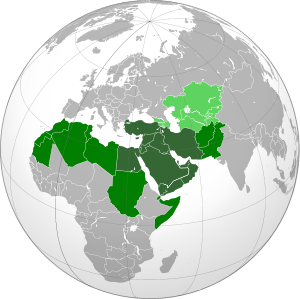American Presidential Elections And The Post Arab Spring Youth Generation – OpEd
This year the 2012 US presidential race is of particular interest to a very special new constituency—Arabs, and especially the young Arabs, who helped ignite the fires of revolution that became the Arab Spring.
Beginning with Barrack Obama’s inspirational speech two years and a half years ago in Cairo, Arabs have been scrupulous in analyzing every remark, insinuation, nuance, and action not only of Obama, but of the GOP candidate Mitt Romney hoping to unseat him next November.
 This new generation of Arabs now has Facebbok and Twitter to source and exchange views on the likely reaction of the U.S. and its leaders to any utterance which may impact on the Arab world.
This new generation of Arabs now has Facebbok and Twitter to source and exchange views on the likely reaction of the U.S. and its leaders to any utterance which may impact on the Arab world.
This new generation of Arabs, who have opened the fight for reform, for human rights, freedom of expression, good governance, the rule of law, and the promise of real democracy, are seeking respect and support for their efforts from whomever shall occupy the White House next November.
They are watching and waiting for signs that Obama and his Republican opponent Mitt Romney understand the historic changes unfolding throughout North Africa and the Middle East and hope to detect from their speeches and pronouncements some indication of how the United States will respond.
Some Arab leaders, like Morocco’s King Mohammed VI, were quick to respond to Arab Spring events and promptly initiated not only major reforms, but also freely elected governments representative of the electorate and thus Morocco was set as a model for other Arab nations.
There is no doubt that traditional Arab political parties and human rights activists feel overtaken by the faceless Facebook crowd of insurgents. In Morocco for example, two and a half million Moroccans are members, making Morocco second only to Egypt in the number of Facebook subscribers in North Africa and Middle East, the region known by the acronym MENA.
A higher percentage of Moroccans use the Internet, however, than Egyptians do. And these Moroccans are mobilizing for their own protest against corruption, poverty, unemployment, access to health care, and various forms of indignity. A Facebook organization by the name of “Democracy and Liberty Now” planned a nationwide demonstration on February 20, 2011. A video representing the various faces of the people who plan on demonstrating has been made. Such public demonstrations, however, are not unusual in Morocco’s multiparty political system.
In fact, Morocco welcomed such demonstrations, provided they stay within the limits of law and order. Traditional activists think that Facebook uprisings are not enough to see reform through; public discontent needs to be channeled and framed by traditional political parties and human rights organizations. Many Moroccans after July 2011 key constitutional reforms have become very excited by the social and political rearrangements unfolding in Morocco. Same thing with Egyptians after their Tahrir Square honorable struggle, the Tunisians, the Libyans and hopefully soon the Syrians.
That is why it is so vitally important that each of the US Presidential candidates, understands and appreciates how important and how influential their campaign words and actions will be for this post-Arab Spring generation now on the threshold of such monumental change.
